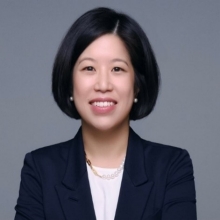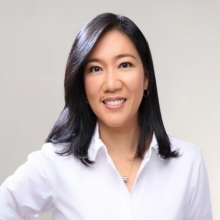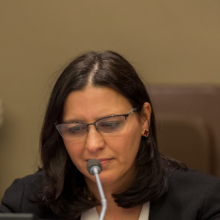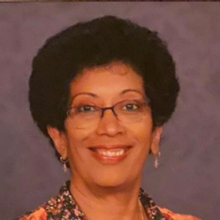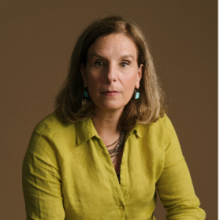The workshop is organized by Beijing Normal University and the World Bank.
- OVERVIEW
- AGENDA
- SPEAKERS
In recent decades, extreme weather and climate events have become more severe, frequent, and costly. According to the World Meteorological Organization (WMO, 2021), between 1970 and 2019, there were more than 11,000 disasters attributed to weather, climate, and hydro- meteorological hazards, which accounted for over 2 million deaths and US$ 3.64 trillion in losses.
Urban areas are particularly prone to the impacts of climate change and associated hazards. Home to more than half of the world’s population, they hold several physical, socio-economical, and institutional challenges that increase the vulnerabilities of their residents. On the other hand, urban areas are also the engines of national economies, generating more than 80% of the global GDP today, and creating many opportunities for sustainable development. Both opportunities and challenges in urban areas necessitate making them more resilient to disasters and to the impacts of climate change.
Given the dynamic and complex nature of cities, urban disaster risk reduction and resilience building require a systemic and yet flexible approach. Actions that can be undertaken include institutional development and capacity building, financial planning, multi-risk assessments, risk-informed urban planning and development, resilient infrastructure, ecosystem services, improved emergency management systems, including early warning systems, increased awareness of residents, and planning for recovery and reconstruction.
The Global Workshop on Climate Change and Urban Resilience will examine and discuss such measures that were initiated following extreme climate and disaster events in large cities of eight countries: China, Japan, the United States of America, the United Kingdom, Germany, Greece, Brazil, Turkey, and the Philippines. International experts from these nations will present the extreme events that impacted their cities and the ensuing disaster risk reduction and resilience-building measures, discussing challenges and opportunities in implementing them.
The workshop will aim at raising awareness of stakeholders and promoting the development of resilient cities as a strategic pathway and science-based policy tool for disaster risk prevention and mitigation. The knowledge exchanges facilitated through this workshop will contribute to the Report that is being developed on the Experience and Lessons Learned in Cities’ Response to Extreme Events.
The workshop will also:
- provide a platform to share experiences in responding to extreme events and compound extreme events, as well as cascading and systemic risks.
- foster international knowledge exchanges on how to enhance urban resilience to prevent and reduce risks of extreme events.
- address how collaboration among sectors can prevent and mitigate disaster risks and build resilient cities.
- raise the awareness of the city stakeholders on the urgency and benefits of disaster risk prevention and management and enable them to make progress and drive innovation in the field of urban resilience.
- promote cross-boundary and multi-sector cooperation and launch the collaboration platform to jointly address the risks of future extreme events through information and data sharing.
This workshop is jointly organized by the Beijing Normal University and the World Bank with hybrid format (off-line and on-line) during January 16-17, 2024. The event convenes urban resilience stakeholders from the government, academia, international organizations, civil society groups, private sectors, and the media.
Date and Time: 9:00-17:30, January 16, 2024; 9:00 - 17:00, January 17, 2024 (Beijing time)
Venue: Yingdong Academic Hall, Beijing Normal University
Zoom Meeting ID: 925 7344 0607
Zoom Meeting Passcode: pX0caHA+&2
Tuesday, January 16, 2024 |
|||
Beijing Time |
Local Time |
Content |
|
9:00-9:30 |
Leaders' Remarks (30 min) |
Welcome Address: Prof. Jun Ma, President of Beijing Normal University Opening Remarks: Mr. Xuequan Zhang, Deputy Director General of China National Disaster Reduction Center Yoonhee Kim, Practice Manager, Urban, Disaster Risk Management, Resilience & Land Global Practice, East Asia and Pacific Region, World Bank |
|
9:30-9:40 |
Group Photo |
||
9:45-10:45 |
High-level dialogue: Key issues for urban resilience in the context of climate change Moderator: Saini Yang Professor, School of National Safety and Emergency Management, Beijing Normal University
Panelists: Guoguang Zheng, Professor and Former Vice Minister, Ministry of Emergency Management of the People’s Republic of China Ming Wang, Professor and Vice President, Beijing Normal University Lesley Cordero, Senior Disaster Risk Management Specialist, World Bank Rajib Shaw, Professor, Keio University; Former Chair, STAG-UNDRR Qunli Han, Professor and Executive Director, Integrated Research on Disaster Risk (IRDR), International Science Council (ISC) |
||
Theme 1: Application of disaster risk information in urban planning Moderator/Host: Dr. Xiaoyong Ni, School of National Safety and Emergency Management, Beijing Normal University |
|||
10:45 – 11:00 |
21:45 – 22:00 (January 15 EST) |
Presentation 1: Experience and Lessons Learned from Superstorm Sandy: Disaster Risk Management, Recovery, and Resilience - A Case Study of New York City (15 min) |
Cynthia Rosenzweig, Senior Research Scientist, NASA Goddard Institute for Space Studies; Adjunct Senior Research Scientist, Columbia Climate School Maria Dombrov, Research Associate II, Climate Impact Group, Columbia University) |
11:00 – 11:15 |
22:00 – 22:15 (January 15 EST) |
Presentation 2: Experience and Lessons Learned from Marmara Earthquakes in Istanbul, Türkiye, August and November 1999 (Online,15 min) |
Ebru Gencer (Online), Adjunct Professor, Columbia University; Senior Urban Resilience Consultant, World Bank |
11:15 – 11:30 |
Break (15 min) |
||
11:30 – 12:30 |
22:30 – 23:30 (January 15 EST) |
Panel Discussion (60 min) |
Panel Moderator: Ming Wang, Professor and Vice President, Beijing Normal University
Panelists: Maria Dombrov, Research Associate II, Climate Impact Group, Columbia University Ebru Gencer (Online), Adjunct Professor, Columbia University; Senior Urban Resilience Consultant, World Bank Kai Liu, Professor, School of National Safety and Emergency Management, Beijing Normal University Shengnan Wu, Associate Professor, Chongqing Academy of Governance Rapporteur: Dr. Xiaoyong Ni, School of National Safety and Emergency Management, Beijing Normal University |
12:30 – 14:30 |
Lunch |
||
Theme 2: Early Warning and Risk Information Communication Moderator/Host: Jidong Wu, Professor, School of National Safety and Emergency Management, Beijing Normal University |
|||
14:30 – 14:45 |
Presentation 3: Experience and Lessons Learned from Flooding due to Typhoon In-Fa in Shanghai, China, 2021 (15 min) |
Shiqiang Du, Professor, Shanghai Normal University |
|
14:45 – 15:00 |
7:45 – 8:00 (Cologne Time) |
Presentation 4: Experience and Lessons Learned from Heavy Rain-Induced Flash Floods in Cologne, Germany, July 2021 (Online, 15 min) |
Alexander Fekete, Professor, University of Applied Sciences Cologne Chris Hetkämper, Research Associate, University of Applied Sciences Cologne |
15:00 – 15:15 |
14:00 – 14:15 (Jakarta Time) |
Presentation 5: Experience and Lessons Learned from Extreme Events: A Case Study of Greater Manchester (Online, 15 min) |
Dilanthi Amaratunga, Professor, University of Huddersfield |
15:15 – 15:30 |
Break (15 min) |
||
15:30 – 17:00 |
8:30 – 10:00 (Cologne Time) 14:30 – 16:00 (Jakarta Time) |
Panel Discussion (90 min) |
Panel Moderator: Lesley Cordero, Senior Disaster Risk Management Specialist, World Bank Panelists: Rajib Shaw, Professor, Keio University Alexander Fekete (Online), Professor, University of Applied Sciences Cologne Weiping Wang, Associate Professor, School of National Safety and Emergency Management, Beijing Normal University Dilanthi Amaratunga (Online), Professor, University of Huddersfield
Rapporteur: Weiping Wang, Associate Professor, School of National Safety and Emergency Management, Beijing Normal University |
17:00 – 17:30 |
Wrap-up of Day 1 Workshop and Overview of Day 2 Program |
Prof. Jidong Wu and Rapporteurs |
|
Wednesday, January 17, 2024 |
|||
Beijing Time |
Local Time |
Content |
|
Theme 3: How to Increase Social Participation in Urban Major Disaster Response Moderator/Host: Dr. Zhengtao Zhang, School of National Safety and Emergency Management, Beijing Normal University |
|||
9:00 – 9:15 |
20:00 – 20:15 (January 16 EST) |
Presentation 6: National System of Civil Protection and Disaster Response in Brazil: From Planning to Implementation of the National Strategy (Online, 15 min) |
Frederico Pedroso, Disaster Risk Management Specialist, Global Facility for Disaster Reduction and Recovery, World Bank Rafael Schadeck, Disaster Risk Management Consultant, World Bank |
9:15 – 9:30 |
Presentation 7: Experience and Lessons Learned from Rainstorm and Flooding in Zhengzhou, China, July 2021 (15 min) |
Saini Yang, Professor, School of National Safety and Emergency Management, Beijing Normal University |
|
9:30 – 9:45 |
Presentation 8: Experience and Lessons Learned from Typhoon Hagibis in Tokyo Metropolitan Area (15 min) |
Rajib Shaw (Professor, Graduate School of Media and Governance, Keio University (Shonan Fujisawa Campus) |
|
9:45 – 10:00 |
Presentation 9: Experience and Lessons Learned from the 2010 Zhouqu Debris Flow, China (15 min) |
Shengnan Wu, Associate Professor, Chongqing Academy of Governance |
|
10:00 – 10:15 |
Special Presentation: The Philippines: The Game Changer Lessons Learned from Super Typhoon Haiyan (15 min) |
Lesley Cordero, Senior Disaster Risk Management Specialist, World Bank, Former Deputy Minister, Philippine Government |
|
10:15 – 10:30 |
Break 15 min |
||
10:30 – 12:00 |
21:30 – 23:00 (January 16 EST) |
Panel Discussion (90 min) |
Panel Moderator: Lesley Cordero, Senior Disaster Risk Management Specialist, World Bank Panelists: Frederico Pedroso (Online), Disaster Risk Management Specialist, Global Facility for Disaster Reduction and Recovery (GFDRR), World Bank Tatano Hirokazu, Professor, Research Division of Disaster Management for Safe and Secure Society, Disaster Prevention Research Institute, Kyoto University Rajib Shaw, Professor, Graduate School of Media and Governance, Keio University Feng Kong, Associate Professor, College of Humanities and Development Studies, China Agriculture University
Rapporteur: Dr. Zhengtao Zhang, Assistant Professor, School of National Safety and Emergency Management, Beijing Normal University |
12:00 -14:30 |
Lunch |
||
Theme 4: Experience Sharing on Nature-Based Solutions and Urban Resilience Moderator/Host: Dr. Yongsheng Yang, School of National Safety and Emergency Management, Beijing Normal University |
|||
14:30 – 14:45 |
8:30 – 8:45 (Athens Time) |
Presentation 10: Urban Heat Resilience: The Athens Case Study (15 min) |
Eleni (Lenio) Myrivili, Global Chief Heat Officer, UN-Habitat, Arsht Rock Resilience Center and Atlantic Council; Council Member, EU Mission for Adaptation to Climate Change, European Commission |
14:45 – 15:00 |
Special Presentation: Exploration of Sustainable Urban Cooling in Guangzhou (15 min) |
Jie Wu, Deputy Director, Guangzhou Urban Planning & Design Survey Research Institute |
|
15:00 – 16:15 |
9:00 – 10:15 (Athens Time) |
Panel Discussion (75 min) |
Panel Moderator: Tatano Hirokazu, Professor, Research Division of Disaster Management for Safe and Secure Society, Disaster Prevention Research Institute, Kyoto University Panelists: Eleni (Lenio) Myrivili, Chief Heat Officer, UN-Habitat, Arsht Rock Resilience Center and Atlantic Council; Council Member, EU Mission for Adaptation to Climate Change Maria Dombrov, Research Associate II, Climate Impact Group, Columbia University Shiqiang Du, Professor, Shanghai Normal University Jie Wu, Deputy Director, Guangzhou Urban Planning & Design Survey Research Institute Guoqin Wang, Programme Manager, UNEP International Ecosystem Management Partnership Rapporteur: Yongsheng Yang, Assistant Professor, School of National Safety and Emergency Management, Beijing Normal University |
16:15 – 16:30 |
Prof. Kai Liu and Rapporteurs |
||
16:30 – 17:00 |
Closing Remarks (30 min) |
Closing Remarks: Beijing Normal University World Bank |
|
Date: January 16 - 17, 2024 ET
Location: Hybrid Workshop (online and onsite)


